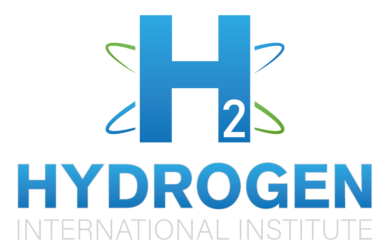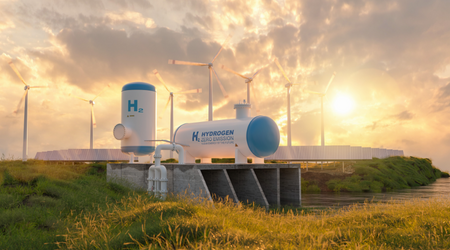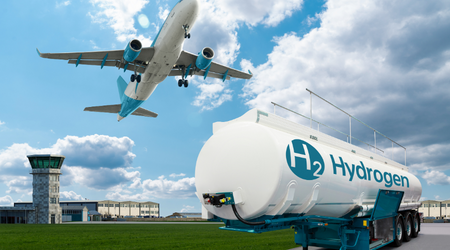Hydrogen Laws, Regulations and Approval
- Learning Scope: 638 Min
- 30 videos / ≈ 20 min
- License duration: 3 months
- Level: Beginner
- Including Final Test
- Certificate of Participation
Description
Gain legal certainty in dealing with hydrogen. Our third course enables participants to find their way around the relevant regulations and provides detailed, legally secure, up-to-date knowledge of the specific regulations for the planning, construction and operation of H2 plants and systems. The application and approval process for a hydrogen production and filling station is presented as an example and the participants are thus taught which legal instruments can be used to plan, apply for, approve, build and operate H2 plants. Our courses include a final test and a certificate of participation.
Benefits
- The knowledge imparted enables the participants to independently find their way around the relevant regulations and provides detailed, legally secure, up-to-date knowledge of the specific regulations for the planning, construction and operation of H2 plants and systems.
- The application and approval process for a hydrogen production and filling station will be presented as an example and the participants will learn which legal instruments can be used to plan, apply for, approve, build and operate H2 plants.
Target Group
Our courses are suitable both for career changers and for deepening specific professional knowledge. The target group includes:
- Professionals and managers who bear responsibility
- Staff involved in the design, manufacture, approval and CE certification of hydrogen systems.
- Project Manager and Product Manager
Learning objectives
- The applicable standards (DIN/VDE/ISO) for the most important safety topics are presented, explained and applied in practical examples.
Learning content
Hydrogen in commercial operation
- Industrial Safety Ordinance
- Legal requirements for hydrogen plants in Germany: Industrial Safety Ordinance (BetrSichV), plants requiring monitoring
- TRBS and explosion protection
- Legal requirements for hydrogen plants in Germany: risk assessment, testing of plants requiring monitoring in Ex areas, more in-depth: primary, secondary and tertiary explosion protection. Work clothing in Ex plants
- H2 Ex atmosphere
- TRGS720: Assessment of Ex hazards, Ex atmosphere
- Primary explosion protection
- TRGS722: Primary explosion protection and definition of Ex-protection zones, inerting, permanently technically sealed installations
- Secondary explosion protection
- TRGS723: Secondary explosion protection: Identification of effective ignition sources, avoidance of ignition of explosive atmospheres through use of suitable equipment, equipotential bonding and avoidance of ignition sources for zones 0, 1 and 2
- Tertiary explosion protection
- TRGS724: Tertiary explosion protection: explosion-proof design, explosion pressure relief, explosion suppression and explosion decoupling.
- MSR in explosion protection
- TRGS725: I&C systems in explosion protection. Evaluation of the system and zone reduction through their use.
- Electrostatic
- TRGS727: Avoidance of electrostatics in explosion protection. Insulating, conductive and dissipative objects, minimum ignition energy, special regulations for hydrogen
- H2 filling station
- TRGS751: Regulations for gas filling stations: Ventilation, gas warning devices, alarm thresholds, floor surfaces, safety valves, filling hose.
- H2 and fire protection
- TRGS800: Fire protection, ATEX95: Marking of equipment for use in hazardous areas
Declaration of conformity and certification
- Pressure equipment and CE
- The Pressure Equipment Directive (PED): Declaration of conformity and CE marking of hydrogen systems, assemblies and components. Conformity assessment modules in the CE procedure
- H2 as a fuel
- DIN EN17124: Hydrogen as fuel: quality requirements, risk assessment, damage due to impurities
- H2 filling stations
- DIN EN17127: Outdoor GH2 filling stations: Communication and protection against overpressure
- LH2 tanks
- DIN EN13985: Liquid hydrogen tanks (LH2) for vehicles: Boil-off, test procedures, overpressure protection
- Fuel cells (FC)
- EN IEC62282-2-100: Safety of fuel cell stacks: pressure protection, gas leakage, flammability, electric strength and warning signs.
- EN IEC62282-3-100: Safety of fuel cell systems: Risk assessment (HAZOP), enclosure and fire protection.
- FC systems: Installation
- EN/IEC62282-3-300: Safe installation of fuel cell systems: Placement, weather protection, supply and exhaust air, operating space, emergency plan.
- Portable FC systems
- EN/IEC62282-5-100: Portable fuel cell systems: Hazardous voltages, protection against chemical hazards, electrical voltages and oxygen deficiency
- Electrolysis systems
- ISO22734: Electrolysis plants: Industrial and domestic plants
- Green hydrogen
- Certification: Green hydrogen
Implementation and approval
Approval procedure
Implementation and approval of hydrogen plants: Hydrogen filling stations and the approval procedure according to the BetrSichV, VdTÜV Merkblatt 514, testing before commissioning, explosion protection concept, building permit.
Requirements on the part of rescue services and insurance companies
Requirements on the part of the rescue services and insurance companies: Obligation to register, facilities for damage limitation, measures in the event of damage, alarm and reporting facilities, first aid
Requirements of the network operator
Requirements of the grid operator for PtG plants: building law, approval procedure, approval requirement, connection to the electricity grid, connection to the natural gas grid in accordance with DVGw-G265-3, H2 plant as subordinate auxiliary plant, approval procedure
Final test
After successfully passing the course, you will receive a certificate of participation.
More about hydrogen
Course Details
- Learning Scope: 638 Min
- 30 videos / ≈ 20 min
- Level: Beginner
- Including Final Test
- Certificate of Participation





